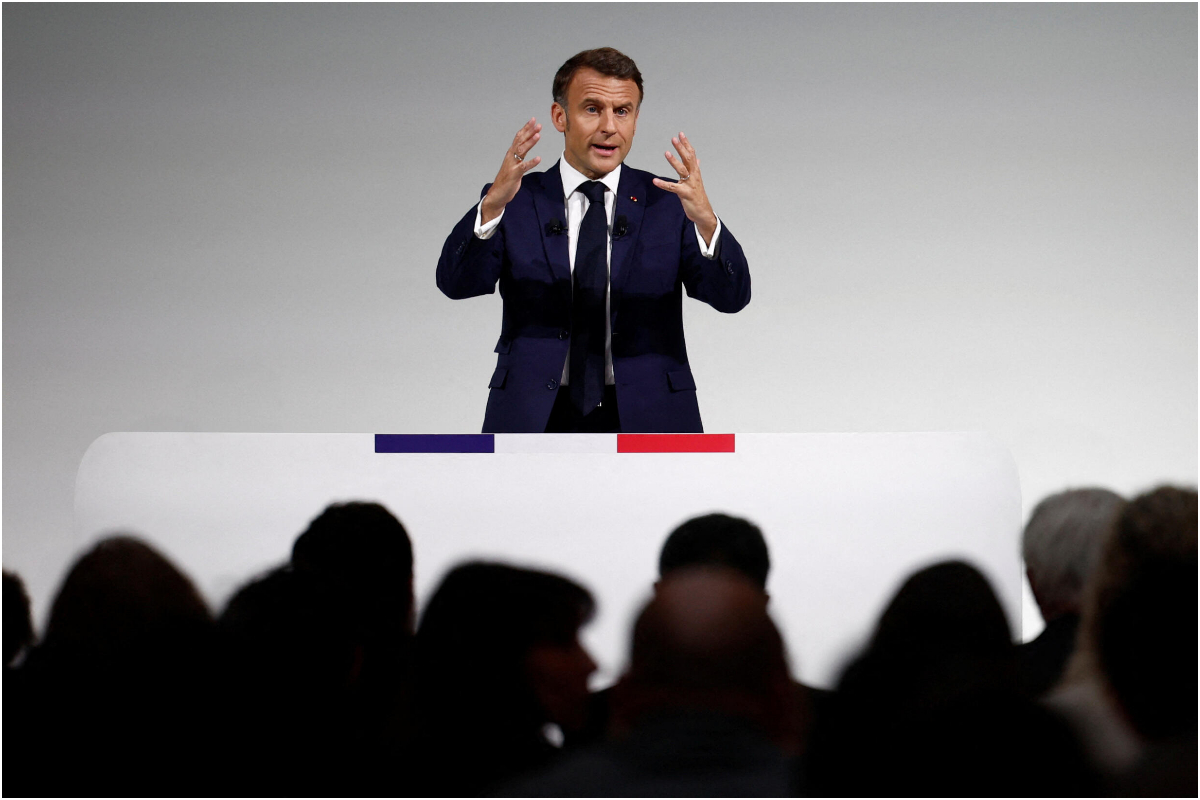- France’s political parties are resolving a parliamentary deadlock caused by an inconclusive snap election.
- Voters united in the second round to prevent the far-right National Rally (RN) from gaining power.
- The current government is expected to remain in place until after the Paris Olympic Games, which open on July 26.
On Friday, France’s political parties rushed to resolve a parliamentary deadlock caused by an inconclusive snap election, while the outgoing prime minister pledged to block any government including members from the far-right or hard-left.
In Sunday’s runoff, no party secured an overall majority in the National Assembly. However, a coalition consisting of Socialists, Communists, Greens, and the hard-left France Unbowed (LFI) secured the most seats, totaling 193 in the 577-member lower chamber.
Voters from various camps united in the second round to prevent the far-right National Rally (RN) from gaining power through a “republican front.” President Emmanuel Macron’s supporters secured second place with 164 seats, while the far-right party came in third with 143 seats.
With each of the three blocs controlling roughly one-third of the chamber, political leaders acknowledge that finding a government capable of surviving a no-confidence vote may be a lengthy process. Macron has dismissed LFI’s demands to be entrusted with forming the next government, seemingly excluding both LFI — the largest participant in the New Popular Front (NFP) left alliance — and the far-right RN from any potential new coalition.
On Friday, Prime Minister Gabriel Attal reiterated his stance, stating that he would strive “to prevent any government” from including ministers from RN or LFI. In a document detailing his campaign to lead the Macron-allied “Renaissance” parliamentary group, Attal recognized that the group had “barely escaped extinction” in the vote. As the leader of the party group, Attal pledged to “completely overhaul our methods and organization.”
Attal, the sole candidate for assuming leadership of the Renaissance parliamentary group, expressed his aspiration to “foster the emergence of a majority around projects and ideas” in the upcoming parliament. Renaissance deputies are set to elect their new leader on Saturday. If elected, Attal stated his intention to rename the group “Together for the Republic.”
The document, seen by AFP, did not mention Macron, amid reports indicating that Attal is distancing himself from his former mentor. Attal attributed the political quagmire to Macron’s decision to dissolve parliament and call for an election. According to the French constitution, Macron, who has nearly three years remaining in his second presidential term, will appoint the next prime minister. The nominee must secure sufficient support to navigate the initial challenge: a confidence vote in the National Assembly.
Political observers suggest that there is a good chance the current government will remain in place until after the Paris Olympic Games, which open on July 26. On Friday, the leftist NFP, which had initially pledged to propose a candidate for prime minister to Macron by the end of the week, admitted that it likely wouldn’t be able to do so.
“I’d rather not set a deadline,” said LFI coordinator Manuel Bompard, telling the TF1 broadcaster that “more time may be needed for discussions.”
Green party boss Marine Tondelier stated that the problem lay in the fact that “everybody claims they are the biggest group,” indicating that vote size might not be “the most important criterion.” A source within the Socialist party, who chose not to be identified, revealed that LFI had proposed four names, including firebrand Jean-Luc Melenchon, who is deemed unacceptable to all other parties and controversial even within LFI ranks.
The Socialists themselves advocate for their party’s boss, Olivier Faure, asserting that he would be acceptable as prime minister to a broad spectrum of deputies ranging from the left to center-right.
“Faure or Melenchon? That’s the real question,” remarked a Socialist official who declined to be named.
The head of the RN, Marine Le Pen, has already issued a threat that her deputies would reject any government including LFI or Green ministers.
The RN’s vice president Sebastien Chenu meanwhile said that he saw “no satisfactory solution” to the current standoff “except a kind of technocratic government without political affiliation.”
[embedpost slug=”macron-retains-prime-minister-place-for-stability-after-chaotic-election-in-france/”]





















